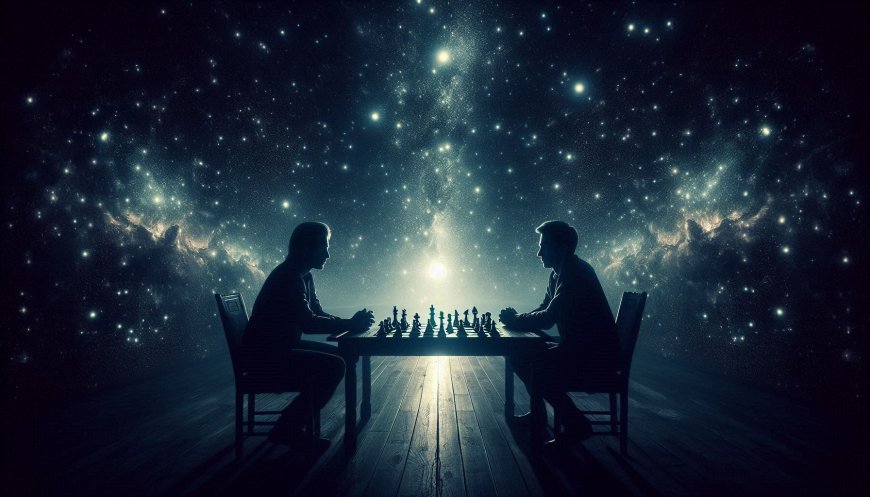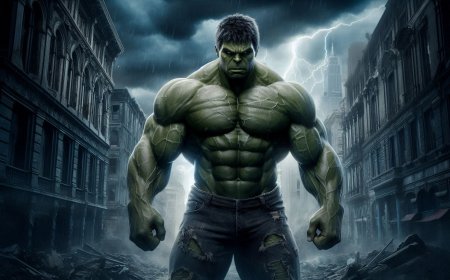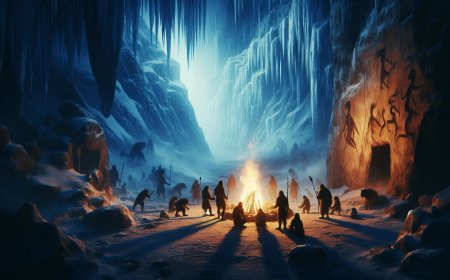The Infinite Universe of Chess
Explore the infinite complexity of chess, where 64 squares and 32 pieces open a universe of possibilities far exceeding the number of atoms in the observable universe. Discover how each move branches into new outcomes in this timeless game of strategy and intellect.

In a quiet room, two players sit across from each other, the glow of the chessboard between them illuminating their focused faces. It’s a simple game, really—just 64 squares, 32 pieces, a battlefield that fits neatly on a small table. And yet, in the space between these two minds, there unfolds a cosmos of unimaginable depth and complexity. What they may not realize, as they carefully consider each move, is that the number of possible chess games they could play exceeds the number of atoms in the observable universe.
It seems impossible. Chess, with its familiar rules and finite number of pieces, must have limits, right? Surely, it’s only a matter of time before every game variation is explored, every strategy uncovered. But the truth is far more astonishing.
At the heart of chess lies a mathematical marvel. With each move, the game splinters into new possibilities, branching like the limbs of an ever-growing tree. From the moment the first pawn steps forward, the universe of chess begins to expand. There are 20 possible opening moves alone—8 pawns that can move two different ways, and 2 knights that each have two possible squares to land on. The opponent then responds, creating another set of branching paths. And so it begins, a chain reaction of choices.
By the time just four moves have been played—two from each side—there are over 300 billion possible positions. The farther the game progresses, the more staggering the numbers become. At 40 moves each, the potential outcomes reach into a realm so vast it’s beyond comprehension, an estimated 10^120 possible games. That’s 1 followed by 120 zeros, an expanse of possibilities far outnumbering the estimated 10^80 atoms that make up the observable universe.
It’s a dizzying thought: within the tiny confines of a chessboard, there exists an infinity. Each game, no matter how similar the opening might seem, is a journey into the unknown, a dance of pieces that could never be replicated exactly again. Even the most advanced computers, which can analyze millions of moves per second, have barely scratched the surface of this infinite frontier.
For chess players, this infinity is both a blessing and a burden. On one hand, it guarantees that no two games are ever the same. Each time you sit down to play, you are entering uncharted territory, where creativity and strategy must adapt to new challenges. The combinations of moves are endless, and so are the opportunities for brilliance. The game continually reinvents itself, offering new puzzles to solve, new ways to outmaneuver your opponent.
On the other hand, it means that true mastery of chess—complete understanding—is impossible. No human, no machine, will ever fully explore the universe of moves and strategies. The greatest grandmasters in history, from Bobby Fischer to Garry Kasparov to Magnus Carlsen, have stood in awe of the game’s boundless complexity. They have mapped portions of the chess world, but beyond each horizon they reach lies another, and another.
The vastness of chess is humbling. It reminds us of the limitations of human cognition. No matter how deep our study, how long our practice, we will never grasp the full scope of what is possible on this board. And yet, this very elusiveness is what makes chess so enduring. Every player, from the novice learning the basics to the grandmaster competing for world titles, encounters something new each time they play. It’s an endless well of discovery.
In many ways, chess is a metaphor for life itself. We are bound by rules and constraints, yet within these boundaries lies a universe of potential. Each decision, each move we make, branches into countless possibilities, shaping a path we could never fully predict. Like chess, life is an intricate dance of choices, strategies, risks, and rewards, all within a finite frame.
The idea that a chessboard can hold more possibilities than there are atoms in the universe serves as a powerful reminder that simplicity and complexity are not opposites, but partners. Within the simplest of frameworks—just a board, some pieces, and a set of rules—there can exist an infinite number of outcomes, each one a unique exploration of human thought, creativity, and strategy.
So the next time you sit down at a chessboard, remember that you’re not just playing a game. You are stepping into a universe of infinite possibility, where every move opens a new door, and where, despite the limits of the board, the potential is boundless. Chess is not just a test of skill; it’s a journey through infinity, a reminder that even in the smallest things, there can exist a cosmos waiting to be explored.
What's Your Reaction?






































































































